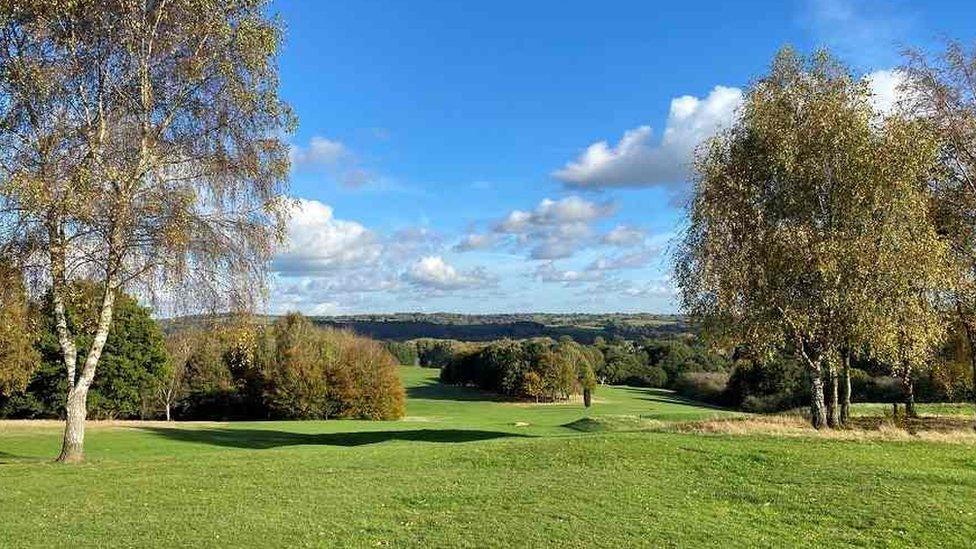Work starts to rewild former cattle farm
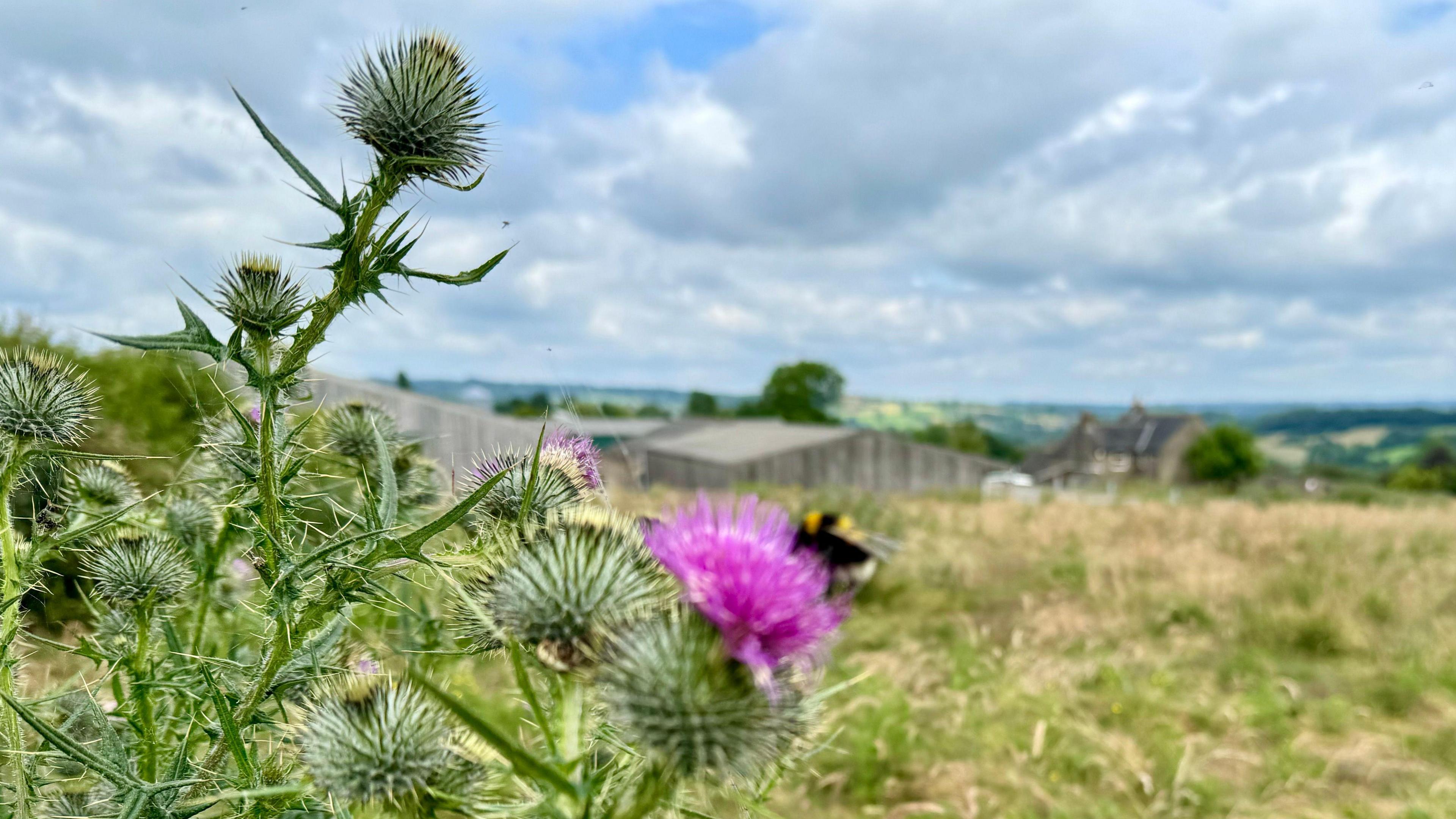
Pollinators should start to thrive at Common Farm in Nether Heage
- Published
Ecologists have started work to turn a former livestock farm into a nature reserve.
Derbyshire Wildlife Trust hopes the land attached to Common Farm in Nether Heage will become a "mosaic of habitats" for insects, birds and mammals.
It said rewilding farmland could benefit food security locally by encouraging pollinators, improving soil health and soaking up flood water.
Supporters helped the trust to buy the farm through a crowdfunding campaign, which raised almost £300,000.
The new 83-acre reserve will help connect existing Derbyshire wildlife habitats at Crich Chase to the north and Wyver Lane to the south west.
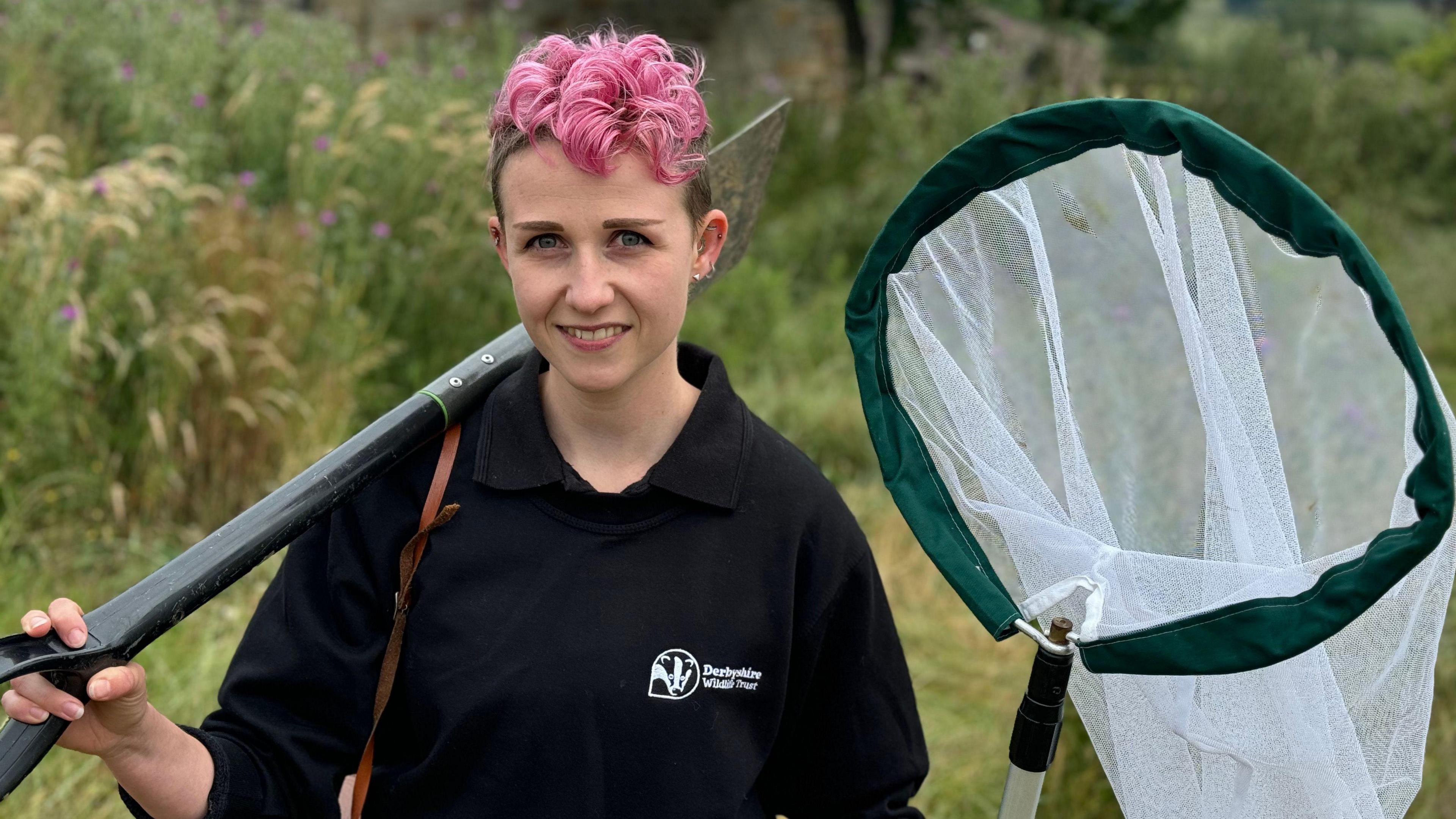
Ecologist Dr Jordan Holmes is conducting baseline surveys at Common Farm
Before it begins to manage the new site, the trust needs to know what is already there.
BBC News watched as ecologist Dr Jordan Holmes conducted baseline surveys of birds, soils and pollinators.
Her fieldwork involves binoculars, a spade and a large net.
Sweeping her net through measured areas of the grassland, which used to be grazed by cattle, revealed disappointing results - a few leaf beetles, a micro-moth and a lot of flies.
"It's not particularly species-rich," Dr Holmes said.
"I'll count them and identify them to species-level and then we'll know how many species we've got on site and what sort of different groups they represent."
Dr Holmes said they should be able to tell whether their rewilding management made a difference when they conducted similar surveys in the future.
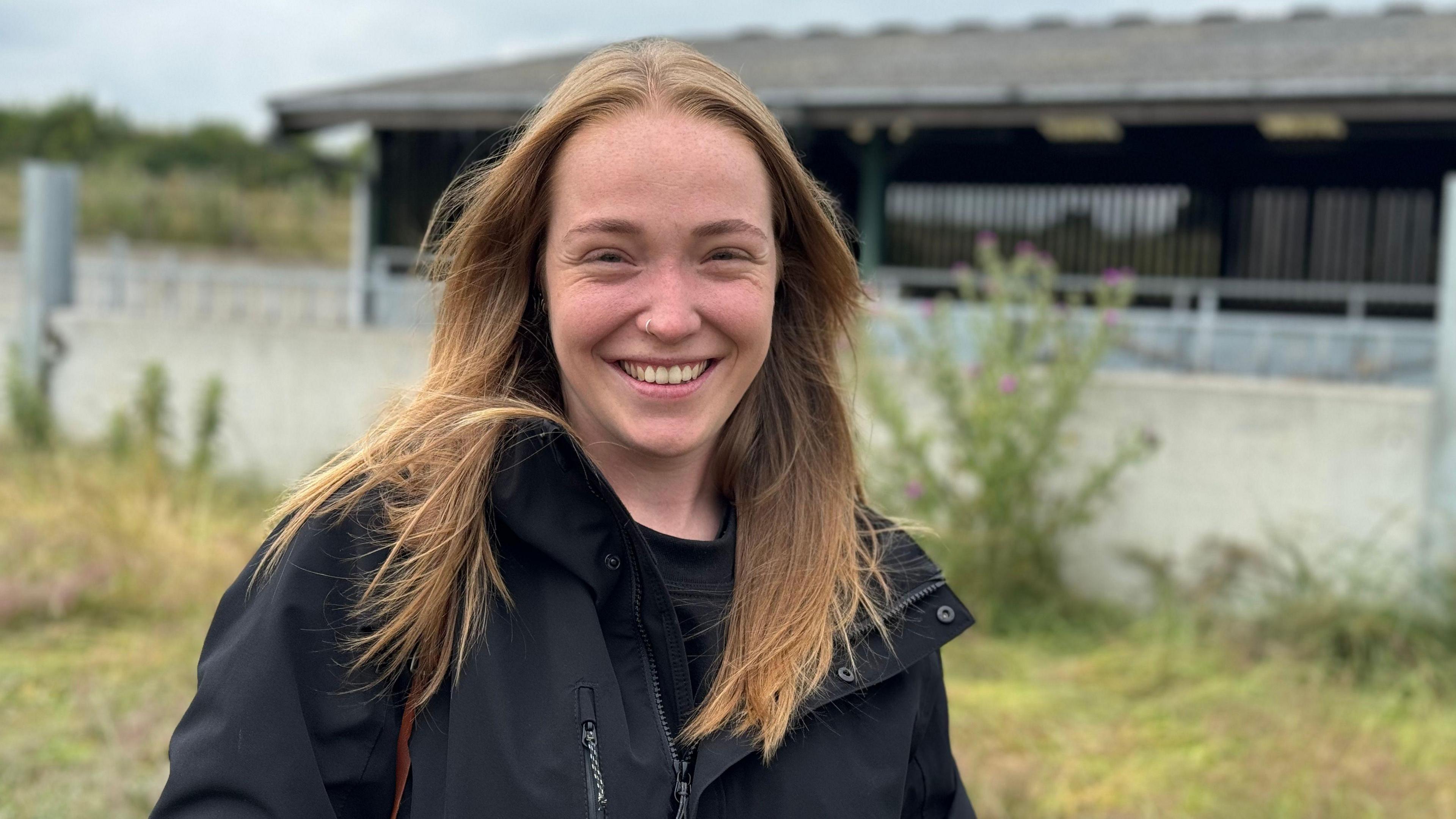
Ellie Field says people are right to be concerned about food security
Experts working for the Derbyshire Wildlife Trust said they were well aware of the ongoing debate around rewilding farmland.
Their local landscape recovery manager Ellie Field said when the trust announced the purchase most people were supportive.
But a few did raise concerns that farmland should remain productive rather than being reserved for nature.
"We are facing a food security crisis in the UK," she said.
"But nature restoration doesn't preclude food production. We want to address [food security] by using nature-based solutions."
The government's 2021 National Food Security Report, external said biodiversity, soil degradation and climate change were among the biggest threats to food production in the UK.
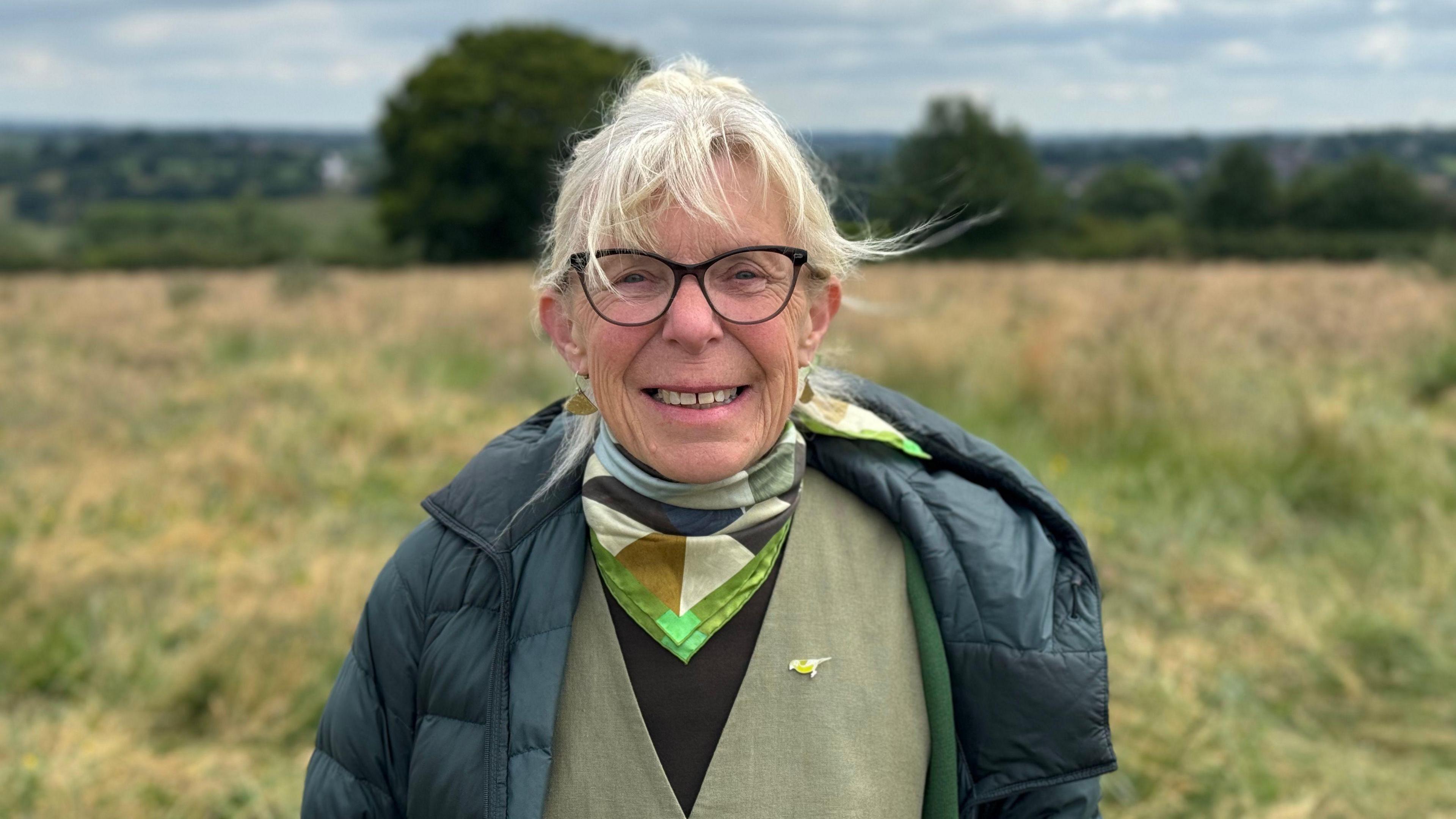
Nether Heage resident Clare Hartwell helped raise funds to buy the farm
Clare Hartwell lives nearby in Nether Heage and supported the fundraising campaign.
She said she visited several times a week and had already noticed a difference after cattle stopped grazing the land.
"I've seen skylarks up here, I've seen red kites," she said.
"It's so important to have areas like this. It's important for people's wellbeing as well as for nature".
Follow BBC Derby on Facebook, external, on X, external, or on Instagram, external. Send your story ideas to eastmidsnews@bbc.co.uk, external or via WhatsApp, external on 0808 100 2210.
- Published2 April 2024
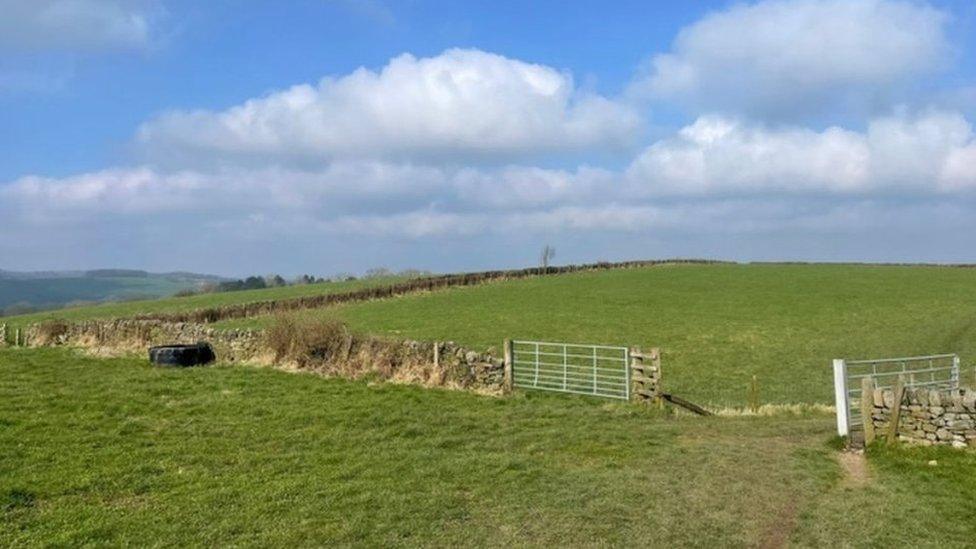
- Published25 February 2024
